This NRCSE networking event proved to be a well-attended and interactive evening which examined the value and potential of using language and culture as a gateway to educational achievement and wellbeing.
The programme opened with a heartfelt poem titled ‘DICE’ written and performed by Annie Rockson, spoken word artist and Development Manager for Young Hammersmith & Fulham Foundation.
Presentations included a challenging and thought-provoking presentation Using language and Culture to teach a core subject by Dr Ornette D. Clennon, Visiting Research Fellow at Manchester Metropolitan University, on the role of education and Making Education a Priority (MEaP).
Thought-provoking, meaningful discussion generated by @revkollektiv ‘whose education ladder is it?’ Black children are climbing the ladder, achieving top grades, still not getting top jobs ‘we have to be more than our white counterparts’
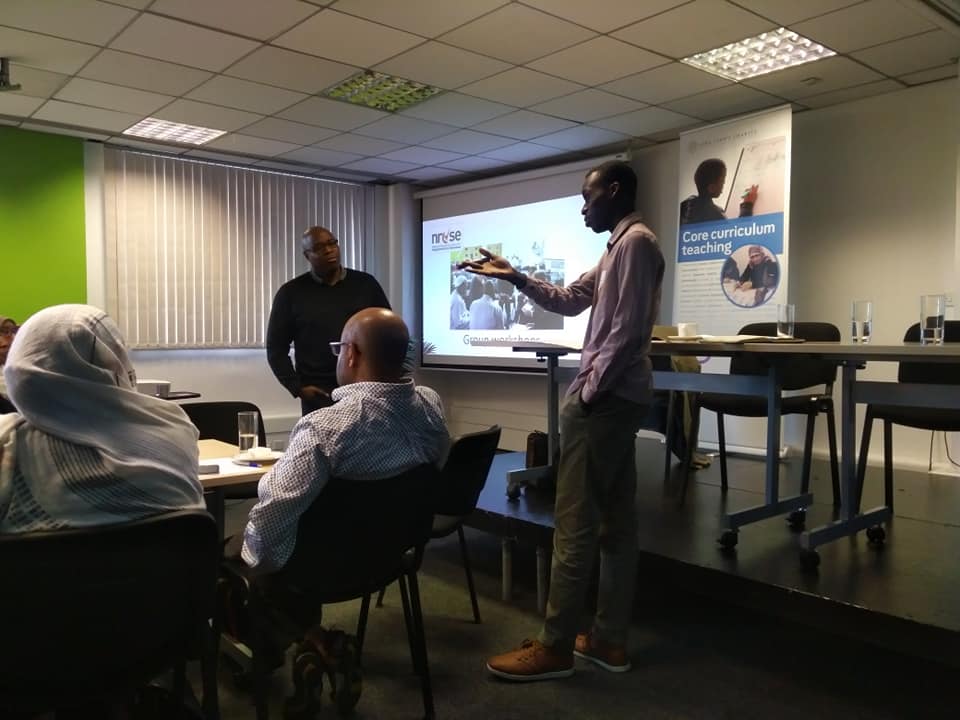
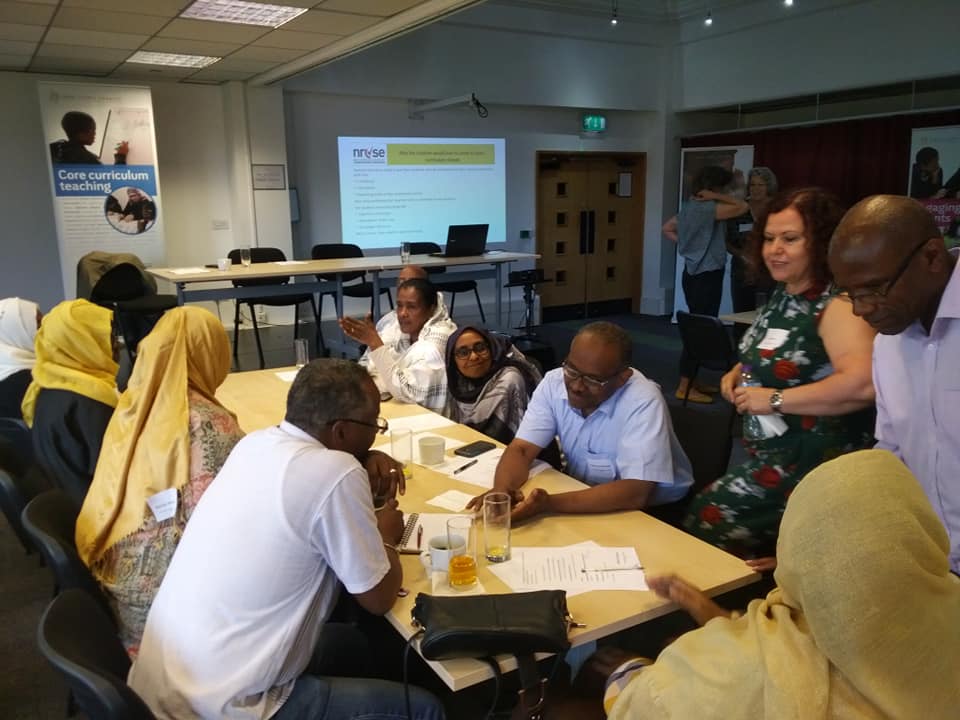
This was followed by an informative and practical delivery by Mojgan Soleimani and Cabdul Mohamed of the Harrow Maths Saturday club, exploring the possibilities of using language and culture as an added resource and ‘Tracking progress to measure success’.
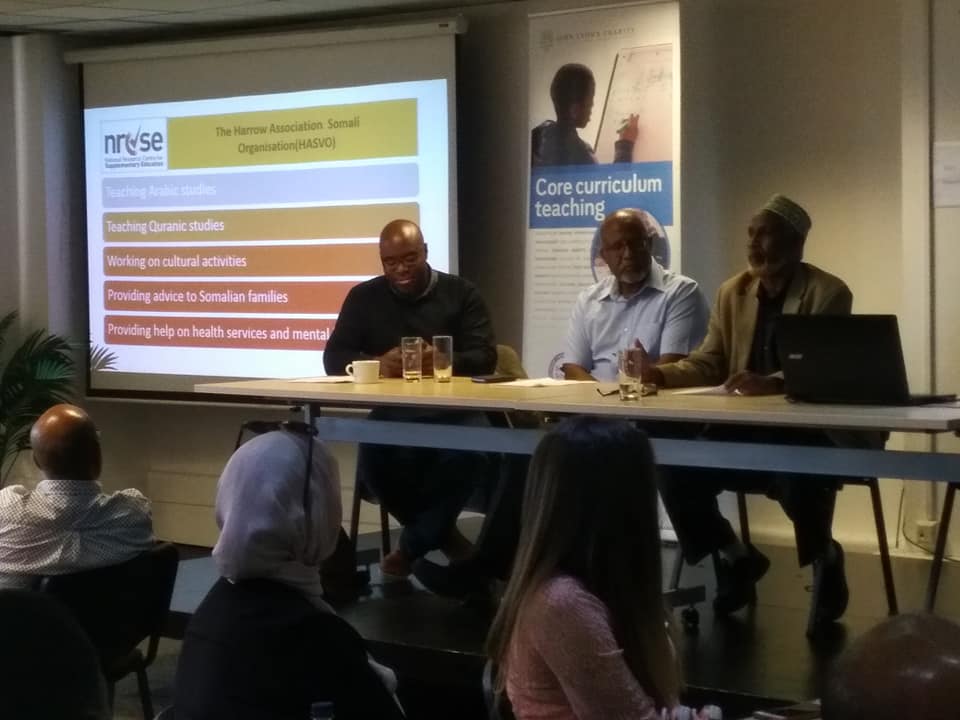
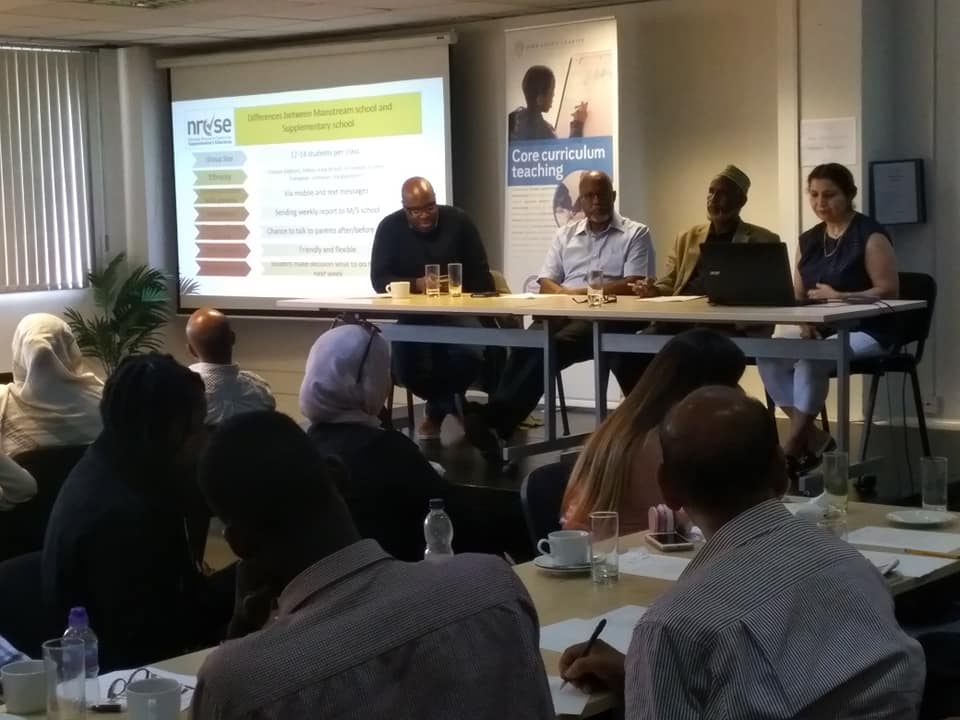 ‘Before my children went to Fatima’s maths class they weren’t doing well. We have to cooperate; we also have to challenge. Too many cuts’ ‘The parents need to think, what are my child’s skills, and help them every way they can to get there. Like Lewis Hamilton’s dad’
‘Before my children went to Fatima’s maths class they weren’t doing well. We have to cooperate; we also have to challenge. Too many cuts’ ‘The parents need to think, what are my child’s skills, and help them every way they can to get there. Like Lewis Hamilton’s dad’
‘There’s nothing wrong with the traditional way to do long division. Telling children that while supporting them to understand the ways they are taught in their m/s school’ Empowers the parents, maintains children’s respect for them. Crucial! Fatima Salmani, Harrow Maths Saturday Club
‘Fatima uses assessment to motivate the children, to inform the parents, to determine what she teaches next. Every element of her teaching is informed by pupil assessment’ @angelabell1 ‘At Sudanese School we use maths/ science to add to their language’ Batoul, Sudanese School Westminster
Following the presentations participants engaged and contributed in two interactive workshops sharing their experiences of good practice and the role of supplementary schools in raising self-esteem and attainment for all students who have English as an additional language or who have a cultural background that goes beyond England.
‘Yes, over time all the school careers advice has been cut. Those cuts hit ethnic minority communities the most. I’m a student careers adviser at uni but pupils need advice BEFORE they get to uni.’
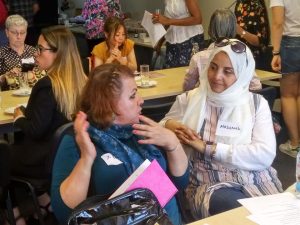
‘Our children need to study. Ok, that’s normal like eating, but that isn’t enough in modern society….Schools need careers advisers, to work out with the children what their skills are, what they want to be ‘
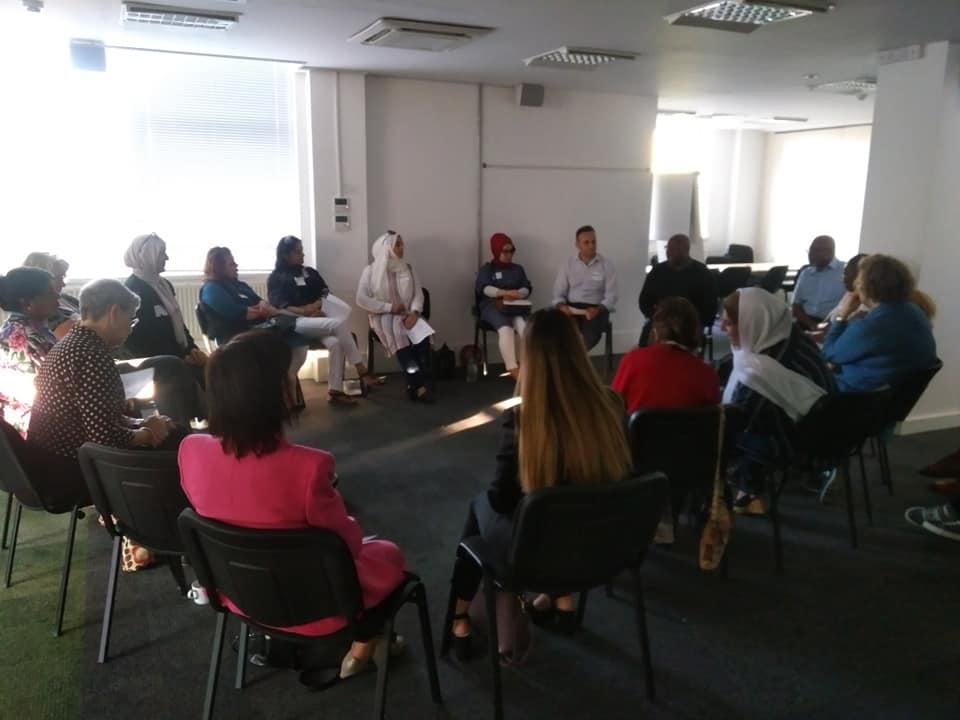

‘There is more work to do than parents sometimes realise. They need up-to-date information.’ ‘Supplementary School is a place where we can guide parents.‘ @revkollektiv supplementary schools can be even more radical. We need to be part of the conversation about new economies.
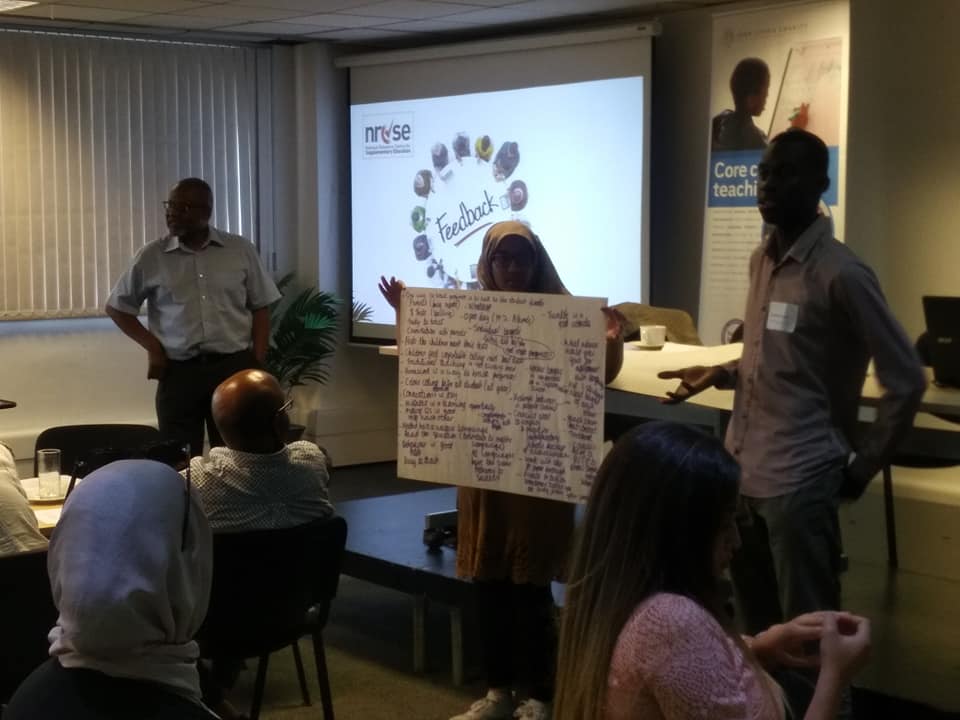 The evening concluded with an award ceremony in recognition of the supplementary schools who had achieved the NRCSE Quality Mark and learners who had completed the Effective Teaching in Supplementary Schools OCN accredited course.
The evening concluded with an award ceremony in recognition of the supplementary schools who had achieved the NRCSE Quality Mark and learners who had completed the Effective Teaching in Supplementary Schools OCN accredited course.
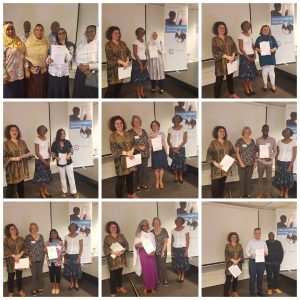
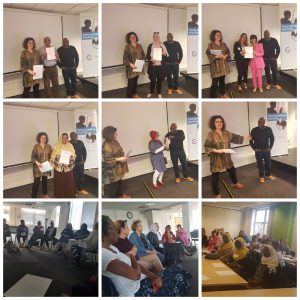
We would like to thank you all for attending and contributing in the NRCSE networking event: The added value of language and culture.

Leave a Reply
You must be logged in to post a comment.